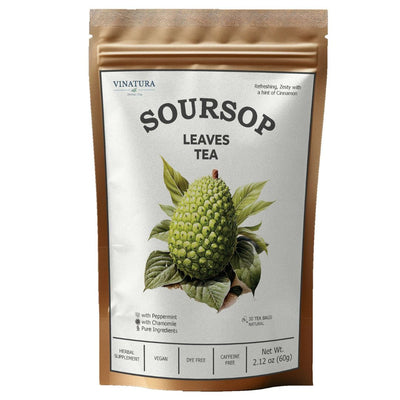
Top Cortisol Triggering Foods For Women
Surely many women have wondered at least once in their lives whether the foods they eat every day affect the hormones in their bodies, especially the hormone cortisol - the leading cause of stress, discomfort, fatigue,...
The answer is yes. There are certain foods that affect the cortisol levels in women's bodies, leading to imbalance and negative effects on overall health. In this article, let's explore cortisol triggering foods for women, their effects and how to limit them!
Before exploring further, please read the disclaimer located at the end of this webpage.
Key Takeaways
- Cortisol-triggering foods for women are fried foods, sweet and sugary drinks, alcohol, etc.
- Consuming cortisol-triggering foods for women makes you feel tired, sleep deprived, and stressed.
- Build a scientific, healthy diet to stabilize cortisol.
What Is Cortisol? How Does It Affect Women’s Health?

Cortisol is a hormone secreted in the adrenal glands, belonging to the glucocorticoid group - a type of steroid hormone. The process of cortisol is controlled by the body very simply.
When cortisol decreases, the hypothalamus automatically produces corticotropin-releasing hormone (CRH), which affects the pituitary gland - stimulating the release of adrenocorticotropic hormone (ACTH). From there, ACTH stimulates the adrenal glands to produce and release cortisol [1].
Although cortisol is always present in the body, it is at an acceptable level and can regulate metabolic activities. When you are stressed, cortisol suddenly increases. Therefore, if you do not stabilize it in time, you may experience discomfort such as dizziness, fatigue, or headaches if cortisol remains unbalanced.
For women, the effects of cortisol are even more obvious. In cases where cortisol is stable, women feel refreshed and happy. But on the contrary, if cortisol is too high, the menstrual cycle is disrupted, sleep is difficult, metabolism is disrupted, etc [2].
Symptoms of Elevated Cortisol in Women
As mentioned above, increased or decreased cortisol levels can affect women's health. You may notice signs that suggest imbalanced cortisol levels (most commonly, levels that are too high), including the following common symptoms:
- Stress.
- Weight gain.
- Acne.
- Fatigue.
- Headache.
- Loss of concentration.
- Memory loss.
- Difficulty sleeping, not sleeping deeply, even insomnia.
- Menstrual cycle disorders.
These symptoms may resemble other hormone-related changes that occur in the female body. If you experience persistent or unusual symptoms, it’s important to consult a qualified healthcare professional for personalized advice and evaluation.
What Foods Raise Cortisol Levels In Women Quickly?
Refined Sugars & Processed Carbohydrates
Foods containing a lot of added sugar or starch through multi-step processing (such as bread, sugary drinks, carbonated drinks, etc.) - also known as ultra-processed foods - can cause blood sugar levels to spike suddenly.
This mechanism affects the adrenal glands, stimulating cortisol production to increase more than normal. At the same time, continuously consuming sugar and sweets also increases the risk of weight gain. If the body is constantly in this state, this may contribute to increased stress or changes in menstrual patterns, etc. [1,3]
Caffeinated Beverages

A cup of coffee (or any caffeinated drink such as tea, energy drinks, etc.) to start the day is a common habit of many people because caffeine can awaken the nervous system, increasing alertness. However, during such sudden brain stimulation, the adrenal glands can mistake this for stress and increase cortisol secretion (Ru Jia, 2022).
Although cortisol is only secreted in large amounts for a short time and then decreases rapidly - when the caffeine wears off, continuously changing cortisol levels like this inadvertently causes the body to fall into a state of imbalance, leading to many unwanted problems such as fatigue, headaches, loss of energy, etc.
Alcohol
Many people turn to alcohol as a remedy for nervous tension, but in fact, alcohol aggravates brain problems - such as headaches, fatigue, dizziness, etc. This can be explained by the fact that when alcohol enters the body, blood sugar levels change suddenly (drop sharply) and become dehydrated.
The adrenal glands will mistakenly think that the body is lacking sugar, so they increase cortisol secretion to stabilize it, but in fact the body does not need it. This leads to excess, may contribute to metabolic imbalances or hormonal disruptions in some individuals, etc [1,5]
High-Sodium Processed Foods
An experiment (Chen, Haas, Williams, & Vaidya, 2020) was conducted on 630 adults on a salt-restricted diet (10 mmol/day, 230 mg/day), then eating normally. The results of measuring sodium concentration showed that when eating salt, cortisol levels were higher than in the urine of people who did not eat salt.
The reason for this phenomenon is that salt (or sodium) stimulates the sympathetic nervous system and the HPA axis, leading to increased secretion of ACTH and cortisol to regulate blood pressure and homeostasis.
In addition, high sodium concentrations in the blood can cause cell dehydration - in other words, affect osmotic mechanisms and blood volume, triggering an endocrine response - here, secreting more cortisol than normal to maintain physiological stability [6].
Trans Fats and Deep-Fried Foods

Fried foods are often high in saturated fat and trans fat. Not only do they cause consumers to accumulate excess fat, leading to obesity, but they also stimulate the body to carry out an inflammatory response.
At this time, the adrenal glands perform the task of secreting cortisol to help "destroy" problematic cells [1]. Furthermore, consuming fried foods - which are high in starch - also causes blood sugar levels to rise rapidly - the body mistakes this as a stressor and stimulates continuous cortisol production [7].
Lifestyle Triggers Of High Cortisol In Women
According to research from a study named Lifestyle, stress and cortisol response: Review II by Sanae Fukuda (2001), consuming cortisol-triggering foods can leave the following problems for women:
Poor Sleep
Lack of sleep or poor sleep is one of the reasons why cortisol increases in women. This is because the nervous system is always in a state of fatigue and stress, and cortisol must be continuously secreted to try to stabilize and "calm down". But in fact, the more cortisol, the more uncomfortable and angry women feel.
Stress
Any factor that makes women feel stressed can promote the production of cortisol in the body. And when the adrenal glands "catch the signal", they immediately secrete cortisol to protect cells from stress factors and cause high cortisol.
Over-exercising
Many people mistakenly think that exercise is an effective way to relax the mind, relieve stress and thereby stabilize cortisol. That is true, but the more you exercise, the less cortisol is secreted.
If you exercise at high intensity for a long time, overexert yourself and do not have a reasonable rest plan, instead of maintaining stable cortisol levels, you will inadvertently make your body more tired.
Frequently Asked Questions
1. How to Adjust Your Diet To Support Healthy Cortisol Levels?
Besides avoiding foods that stimulate cortisol secretion, you should exercise lightly before going to bed, get enough sleep, practice deep breathing exercises, stop working or doing anything that makes you stressed, etc. These positive habits will help you stay happy, cheerful, and stress-free.
2. What Are Foods That Reduce Cortisol In Women?
Certain foods may support balanced cortisol levels as part of a healthy diet, such as those rich in omega-3 (fatty fish, oysters, caviar, etc.), whole grains, herbal teas, and magnesium-rich vegetables like spinach, kale, and turnip greens. You should flexibly change the foods in these categories to supplement nutrients, maintain a healthy body, and be full of energy.
3. How To Test Cortisol Levels Exactly?
Cortisol can be detected through blood, saliva or urine samples. You just need to go to the nearest lab, contact the staff to be tested. In which, the normal cortisol level will be between 10 to 20 mcg/dL (results viewed at 6 - 8 am) or 3 to 10 mcg/dL (results viewed at 4 pm) [8].
Conclusion
At this point, hopefully you have a clear understanding of the list of cortisol triggering foods for women along with some harmful habits for the body, causing cortisol to increase beyond the allowed level.
From this information, you should maintain scientific eating habits, a healthy lifestyle and monitor cortisol regularly. Thanks to that, you can avoid unwanted health problems and always be happy and cheerful.
Testimonial Disclaimer
*The testimonials presented on this website are provided by individuals based on their personal experiences with our products. These testimonials represent individual opinions and experiences, which may not be typical or applicable to all users of our products. Results may vary depending on a variety of factors, including individual health, lifestyle, and adherence to product usage instructions.References
- [1] Clinic, C. (2021, December 17). Cortisol: What It Is, Function, Symptoms & Levels. Retrieved June 24, 2025, from Cleveland Clinic website: https://my.clevelandclinic.org/health/articles/22187-cortisol
- [2] Woods, N. F., Mitchell, E. S., & Smith-DiJulio, K. (2009). Cortisol levels during the menopausal transition and early postmenopause. Menopause the Journal of the North American Menopause Society, 16(4), 708–718. https://doi.org/10.1097/gme.0b013e318198d6b2
- [3] Mendoza, K., Smith-Warner, S. A., Rossato, S. L., Neha Khandpur, Manson, J. E., Qi, L., … Sun, Q. (2024). Ultra-processed foods and cardiovascular disease: analysis of three large US prospective cohorts and a systematic review and meta-analysis of prospective cohort studies. The Lancet Regional Health - Americas, 37, 100859–100859. https://doi.org/10.1016/j.lana.2024.100859
- [4] The Association of Lifestyle and Mood with Long-Term Levels of Cortisol: A Systematic Review. (2022). Cogent Psychology. https://doi.org/10.1080//23311908.2022.2036487
- [5] Chakrabarty, B. K., Sud, K., Ganguli, P., & Khan, S. A. (2020). Assessment of early morning serum cortisol levels in adult male patients with alcohol-related disorders. Medical Journal Armed Forces India, 78(1), 47–53. https://doi.org/10.1016/j.mjafi.2020.03.001
- [6] Chen, A. X., Haas, A. V., Williams, G. H., & Vaidya, A. (2020). Dietary sodium intake and cortisol measurements. Clinical Endocrinology, 93(5), 539–545. https://doi.org/10.1111/cen.14262
- [7] Johar, H., Spieler, D., Bidlingmaier, M., Herder, C., Rathmann, W., Koenig, W., … Ladwig, K.-H. (2021). Chronic Inflammation Mediates the Association between Cortisol and Hyperglycemia: Findings from the Cross-Sectional Population-Based KORA Age Study. Journal of Clinical Medicine, 10(13), 2751–2751. https://doi.org/10.3390/jcm10132751
- [8] Clinic, C. (2023, September 7). A cortisol test measures the level of cortisol in your blood, pee or spit. It can help diagnose certain conditions, like Addison’s disease or Cushing syndrome. Retrieved June 24, 2025, from Cleveland Clinic website: https://my.clevelandclinic.org/health/diagnostics/22417-cortisol-test
Author

Product Disclaimer
Including an ingredient or study does not evaluate, endorse, or recommend any Vinatura product or any third-party product. Some ingredients discussed may not be used in any Vinatura product.
The content of the articles has not been evaluated by the Food and Drug Administration (FDA) and is not intended to promote or endorse any specific product. Any products sold on this website are not intended to diagnose, treat, cure, or prevent any disease.
Opinions and Endorsements
Any claims, statements, or opinions expressed in the articles are those of the author(s) and do not necessarily reflect the views or opinions of the manufacturers of the dietary supplement products. The products sold on this website are separate from the content of the articles and are not directly endorsed or associated with the information presented here.
Liability Disclaimer
The author(s) of the articles, website, and manufacturers of the dietary supplement products do not assume any liability for any potential consequences arising from the use of the information provided in the articles. Ingredient effects, dosages, and safety vary by individual, formulation, and context; some ingredients interact with medications or may be unsuitable during pregnancy or lactation. It is recommended that individuals consult with a qualified healthcare professional before making any dietary or lifestyle changes, including the use of dietary supplements.
Product Usage
Please refer to the product labels and packaging for specific usage instructions and guidelines for the dietary supplement products sold on this website.
Customer Support
For any concerns or questions regarding the dietary supplement products, please contact our customer support team, who will be more than happy to assist you.





Leave a Comment
Be the first to comment.
What do you think?